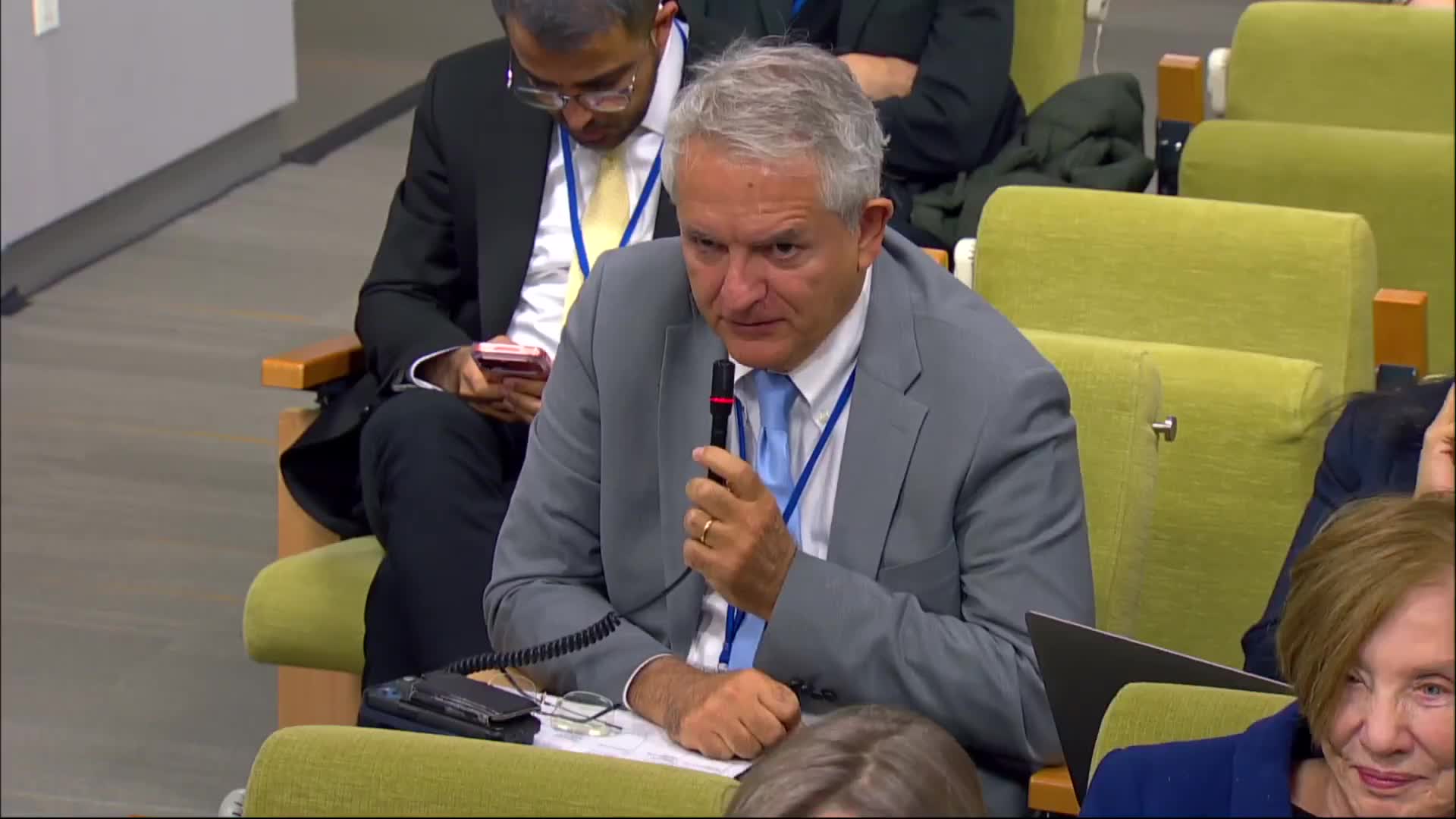Sierra Leone presidency urges accountability and use of ICC tools on Sudan as Council faces pressure to act
Get AI-powered insights, summaries, and transcripts
Subscribe
Summary
Ambassador Michael Imran Kanu said the Security Council must pursue accountability to end atrocities in Sudan, identified the ICC as an important tool within its jurisdiction, and urged simultaneously pursuing reparations and political engagement.
When asked whether the Security Council should "upscale" its response to the humanitarian crisis in Sudan, Ambassador Michael Imran Kanu said that press statements are sometimes useful but that there is an urgent need for action to end atrocities and to pursue accountability. "There has to be accountability," he said, and he identified the International Criminal Court as an "effective tool" to address atrocities within its jurisdiction.
Kanu reviewed past Council dynamics: he said Sierra Leone and others had pursued a protection-of-civilians resolution that was vetoed, and he noted that the ICC conviction of a senior individual (transcribed as "Al Abdulaman") demonstrates that accountability mechanisms can take effect even if slowly. He suggested that the Council should consider whether ICC jurisdiction could be expanded in scope for Sudan and said a Sudanese reparations committee proposal should be pursued alongside international measures.
Why it matters: Journalists pressed the presidency about whether Africa-led Council action could do more to protect civilians and end mass atrocities. The presidency's emphasis on accountability and its reference to the ICC and reparations proposals indicates Sierra Leone sees legal and hybrid avenues as part of the response, though it acknowledged political constraints among Council members.
Additional context from the briefing: Kanu said renewals and mandate decisions for Sudan-related and other country missions remain on the November program and that the United Kingdom, as penholder in some aspects, has indicated it will engage Council members on additional measures. He called for consolidated mediation efforts and for party ownership of negotiations in Sudan, citing a retreat in Djibouti as an example of coordination attempts.
What remains open: The presidency did not announce new Council measures or an expanded ICC referral; it described existing proposals and past vetoes and said members are debating available tools.
